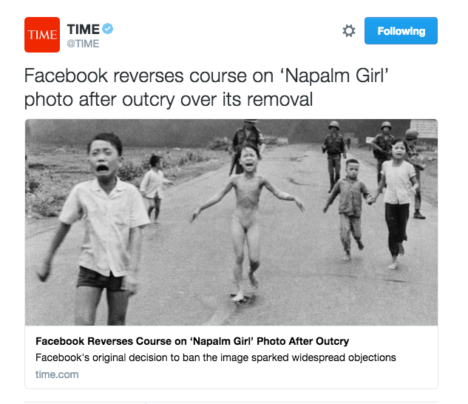‘With great power comes great responsibility’: Press Council chair censures Facebook on censorship
The chair of the Australian Press Council has lashed social media behemoth Facebook for pulling down a Pulitzer Prize-winning photograph, warning the media company needs to develop a proper editorial policy.
Professor David Weisbrot today issued a statement urging Facebook to “review” its procedures after it pulled down a Norwegian journalist’s post with the famous ‘Napalm Girl’ photo from the Vietnam War, a decision which was decried in the Norwegian parliament. Facebook eventually reversed its decision.
In the statement, Weisbrot, who leads the press watchdog, called Facebook a “leading global publisher in all but name” adding: “Far too many people have fought for free speech and press freedom to have it threatened because a major news distribution platform like Facebook adopts unthinking, one-size-fits-all standards that censors images and information the world needs to see.”
“The Australian Press Council calls on senior management at Facebook to review urgently the way it aggregates and disseminates the world’s news and to make public the editorial policy, if there is one, which guides this work,” he said.

